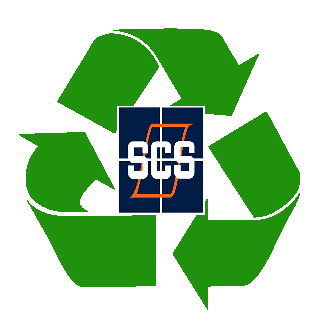Introduction of eWaste Project (27 April 2011)

The problems of waste and its effects on the environment have been well promoted in our country. As a result, the public are more aware and conscious about waste production. The 3Rs of Reduce, Reuse and Recycle is a household phrase even among the very young. Waste classification and the various measures on the handling of these different types of waste are also well documented and legalized in our country. However e-waste is still very much in its infant stage especially in Sabah. E-waste or electronic waste is the fastest growing waste in the world today. The relatively short lifespan of electronic equipment mainly due to the advance in technology which render an equipment obsolete in a much shorter period of time, has meant that a lot of waste is generated. E-waste is generally defined as used or discarded electrical and electronic devices. It is categorized as scheduled wastes in the First Schedule of the Environmental Quality (Scheduled Wastes) Regulations, administered by the Department of Environment (DOE). Under code SW110, e-wastes are defined as wastes generated from the electrical and electronic assemblies containing components such as accumulators, mercury switches, glass from cathode-ray tubes and other activated or polychlorinated biphenyl-capacitors, or contaminated with cadmium, mercury, lead, nickel, chromium, copper, lithium, silver, manganese or polychlorinated byphenyls. In layman terms, e-wastes comprises electrical or electronic devices such as calculators, alarm clocks, computers, televisions, printers, video cameras, telephones, cellphones, VCD/DVD players, refrigerators, radios, Hi-Fi, air conditioning units, washing machines, electrical fans, rice cookers, irons, ovens, microwave ovens, vacuum cleaners and so on. E-waste disposal is a problem for the world today. Disposal of E-waste to landfill can contaminate and pollute the environment. Components of e-waste such as acids, cadmium, polybrominated diphenyl ethers (PBDE), polychlorinated biphenyls (PCB), mercury can leach and contaminate the soil and ground water. In some cases, vaporization of these chemicals is hazardous to health. The two generators of E-waste in Malaysia are households (home appliances) and business production (office appliances and industrial equipment.) As scheduled waste, e-waste is required by law to be transported by licensed contractors and delivered to licensed recycling plants or disposed off in the centralized scheduled waste treatment and disposal facility in Bukit Nanas, Negeri Sembilan. E-waste management is a concern in Sabah for various reasons. Firstly, it is not taken seriously by the public nor the private sectors because the impact is not as visible or immediate compared to solid waste. Secondly, education and public awareness on the impact is also limited. Not many people understand e-waste and its implications. Thirdly, the volume of e-waste produced make it economically unsuitable and unsustainable to manage. It is with this concern that Sabah Computer Society has made e-waste management one of its main projects in 2011. The objectives of the project are to: 1. Educate the public on e-waste and its implications 2. Act as a collection center for e-waste 3. Be a link between the consumers and the e-waste authorized handlers * Michael Tan
|